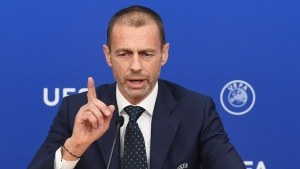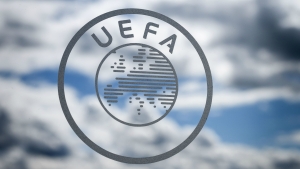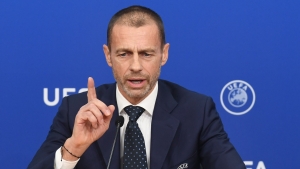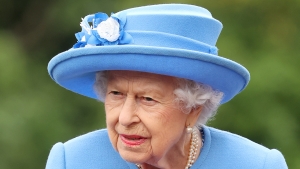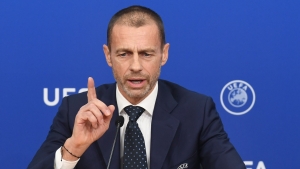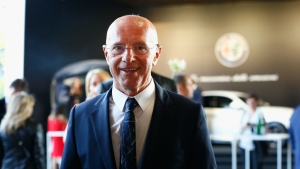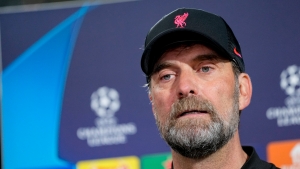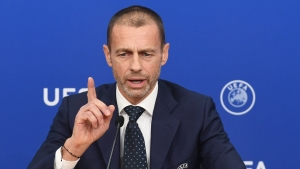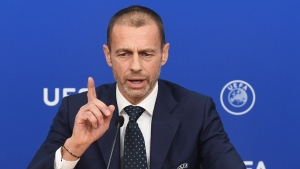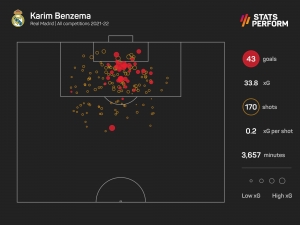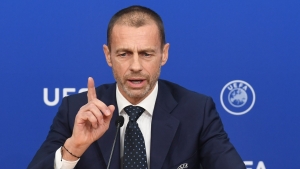UEFA president Aleksander Ceferin declared European football must remain open to all clubs amid ongoing speculation concerning a breakaway Super League.
Although the majority of the Super League's founding members withdrew in the face of public and political pressure following a much-criticised launch last April, the likes of Real Madrid, Barcelona and Juventus remain committed to the project.
Florentino Perez, who was to be named Super League chairman, has continued to call for Europe's elite clubs to secede from UEFA, insisting the breakaway competition was "still alive" in June.
More recently, Madrid midfielder Toni Kroos backed the stance of the Blancos president by claiming: "It [the Super League] should have been in operation for a long time".
But Cerferin, speaking at the FPF Football Talks Portugal 2022, emphasised his confidence in the continental game's existing structure.
"Football, for sure, will stay open in our competition always. The essence of European football, which is by far the strongest football in the world, is that it's open," he said.
"What those people who think that only the elite play football don't understand is that even they would be much worse if they wouldn't have everyone competing.
"Last season we saw Sheriff [Tiraspol] from Moldova winning in Madrid against Real Madrid. If my Slovenian team with a budget of two million won against Tottenham, that's the essence of European football. It's part of our culture. It's part of our history and it will never change.
"It shouldn't change and what many people don't know is that UEFA returns in club football 93.5 per cent of all the revenues to the clubs, and altogether 97 per cent of all the revenues go back to the clubs.
"This is the most important part of football and that's why we are as successful as we are. I absolutely insist and will insist that the dream will stay alive for everyone."
One of the clubs' major motivations for looking to break away from UEFA, besides the ability to regulate their own competition, is to arrange more money-spinning contests against other elite sides.
Despite the Super League's demise, the participants are set to get their wish when the Champions League introduces an additional four group-stage matches for each team from the 2024-25 season.
That change has been met with fierce criticism from some quarters, with the busy nature of the football calendar already a major talking point.
While Ceferin acknowledged the challenges created by the schedule, he claimed a "balance" between player welfare and financial sustainability had been found, and pledged there were no further reforms planned.
"The calendar is very dense. I have to say it feels close to the limit probably. The thing is that clubs have to stay sustainable," he added.
"If clubs want to be sustainable, they have to have a certain amount or number of matches. Now, the ones who complain are mainly from the big clubs who really play more than the others, but from the other point of view, they have 25 top-class players.
"So the truth here is not black and white. I think we should seriously think about the number of matches, some think that two cups are too much. That's not the jurisdiction of UEFA to decide.
"But in principle, from one point of view clubs are saying that they want matches to get revenues so they can say sustainable. From the other point of view, some are complaining about too many matches.
"So we have to find a balance here. I think we did find it and we changed the competition post 2024. After that, I don't see any possibility of changing anything soon."
Meanwhile, Ceferin also highlighted his confidence the World Cup would make a return to Europe in 2030, backing a joint bid from Spain and Portugal.
"I see it as a winning bid. We will do whatever we can to help the bid. It's time for Europe to host the World Cup. Both countries are passionate about football," he said.
"You feel and you smell football in Spain and Portugal. The infrastructure is great.
"So we have some plans on how to help. I think, and I'm sure, that will have the World Cup in 2030 in Spain and Portugal."
























